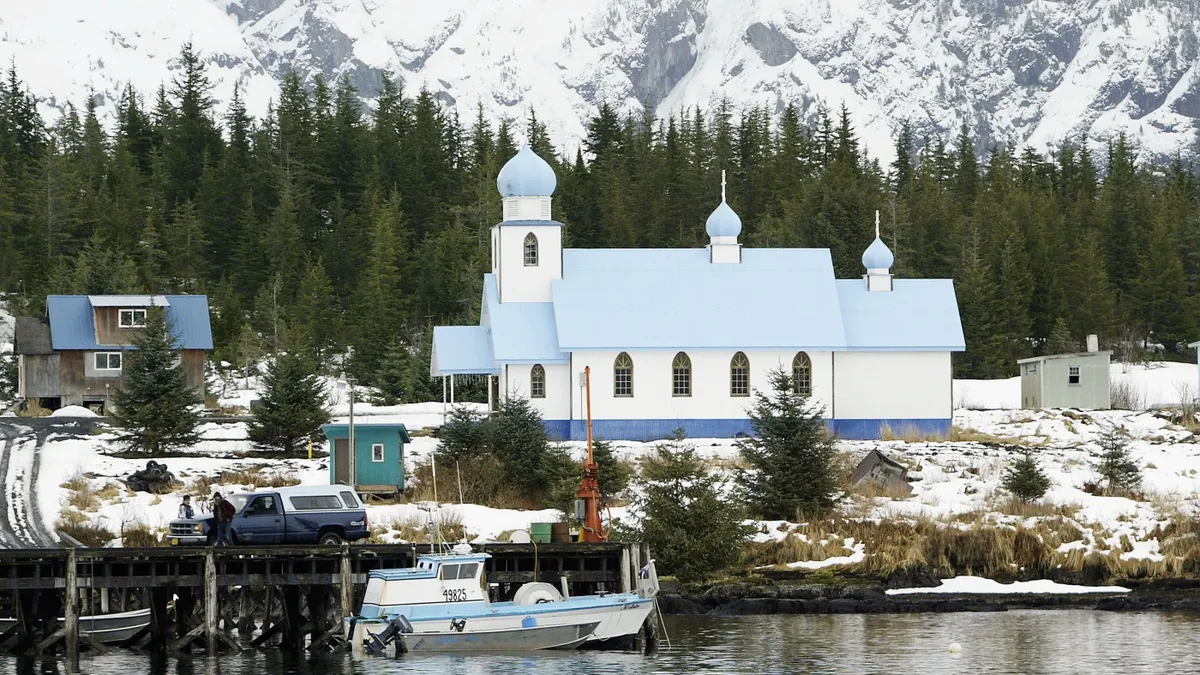
In the mid-19th century, Russia lost a war in Crimea, resulting in significant national debt. To alleviate this financial burden, Russia made a pivotal real estate transaction with the United States, selling its colony of Alaska to the Americans. This historical backdrop sets the stage for an upcoming summit between Presidents Trump and Russian leader Vladimir Putin, scheduled for Friday in Alaska. The discussions will center around another costly and contentious Russian military engagement—this time involving Crimea, a territory that Russia has controversially captured amid its ongoing conflict with Ukraine.
The choice of Alaska as the meeting location is not merely geographical; it is steeped in symbolism and shared history. Alaska was a thriving Russian colony from 1799 until 1867. Recent social media posts by Kremlin envoy Kirill Dimitriev highlight this era, showcasing images of 19th-century Russian Orthodox Churches with their iconic onion domes that still stand in Alaska today. While many Americans are aware of the purchase of Alaska from Russia, few recognize the profound historical significance of its status as a full-fledged colony rather than just a distant territory, as noted by Lee Farrow, a history professor at Auburn University at Montgomery and author of Seward's Folly: A New Look at the Alaska Purchase.
Russia's decision to sell Alaska was primarily driven by its need to settle war debts accrued during the Crimean War (1853-1856), which resulted in a humiliating defeat against the combined forces of Britain, France, and the Ottoman Empire. With the depletion of fur-bearing animals such as bears, wolves, and otters, Russian hunters found little economic incentive to maintain their presence in Alaska, viewing it as more of a liability than an asset. This remoteness led to the territory being referred to as Siberia's Siberia.
Following brief negotiations in the spring of 1867, the U.S. agreed to purchase Alaska for $7.2 million, equivalent to about 2 cents per acre. Covering over half a million square miles, Alaska remains the largest state in the U.S. This transaction, known as Seward's Folly—named after Secretary of State William Seward, who negotiated the deal under President Andrew Johnson—was initially met with skepticism. Critics labeled it a frozen wasteland, a characterization Farrow disputes.
In its early years as a U.S. territory, Alaska, along with its indigenous peoples, received minimal attention from the federal government. Investment was scarce, and those who moved to Alaska were primarily missionaries or adventurers, often left to fend for themselves. It wasn't until decades later that significant development began, spurred by the discovery of gold in 1896. Alaska achieved statehood in 1959, and large oil reserves were uncovered in the 1950s and 60s, further transforming the region's economic landscape.
Interestingly, some Russians today still harbor thoughts that Alaska should belong to them. During her visit to Russia in 2017, Farrow noted a persistent question from audiences regarding the legitimacy of the U.S. purchase of Alaska. Many Russians are influenced by a narrative suggesting that the United States either did not pay for the territory or that it was merely a lease, fueling claims that it should be returned.
While Alaska changed hands peacefully, Crimea has long been a contested region due to its strategic position along the Black Sea. Russia sought complete control of Crimea during its war against the Ottoman Empire in 1853, mistakenly anticipating a swift victory. However, the intervention of Western powers like Britain and France, coupled with the underperformance of the Russian military, led to a humiliating defeat for Russia.
In the 20th century, Crimea became part of the Soviet Union, but after the Soviet collapse in 1991, it was integrated into newly independent Ukraine. Fast forward to 2014, when Putin initiated military action in Crimea, leading to its swift annexation without significant resistance. Ukraine continues to demand the return of Crimea, regularly conducting airstrikes against Russian forces stationed there. As peace negotiations loom, it is clear that Crimea will be a critical topic of discussion at the upcoming Trump-Putin summit.